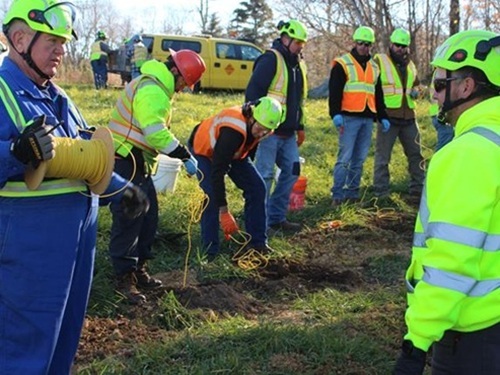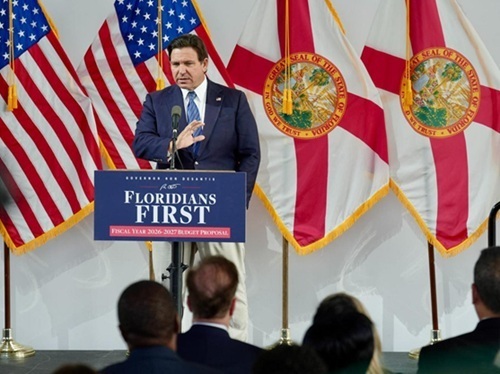A recent episode of the “Talking Michigan Transportation” podcast produced by the Michigan Department of Transportation focuses on the agency’s Transportation Diversity Recruitment Program or TDRP.
[Above image by the Michigan DOT]
The 10-week program allows students to work alongside other on-the-job training program participants, internal staff, and external professionals who provide engineering, technical, inspection, and project management services for state road and bridge projects.
James Jackson, who coordinates the TDRP for Michigan DOT, talked about what the students can expect from participation in the program on the podcast.
“Not only have we championed focusing on partnering with minority serving institutions, such as historically black colleges and universities, we also have been working diligently to engage with Hispanic serving institutions and other organizations that serve our indigenous population,” he explained.
“It’s really important that the footprint of our state is represented and sometimes it takes a lot of time before people trust you.” Jackson said. “But we are actively pursuing that trust and hopefully pretty soon we’ll be able to see the fruit of that. Through partnering with Federal Highway Administration, we really want to show Michigan DOT as an agency that’s truly committed to not only diversity initiatives but inclusivity and belonging.”
Donte Harris, a three-time TDRP intern and now working for the electric vehicle charging startup company in Detroit, talked about how the 11-year-old program helped kick-start his transportation career.
“The biggest thing I would say that it gave me was exposure. It showed me a lot of just different work in construction as a whole, as well as just introduction to contractors and what that world is like,” Harris said on the podcast.
“Then you add to that exploring campuses like University of Michigan and Michigan State – and just seeing a lot of the footwork being done in Michigan as a whole – it really showed you that Michigan is still one of the leads in mobility,” he explained. “So being able to see things like that during my time was honestly super important and I probably wouldn’t be here without it.”
To listen to the whole podcast episode, click here.
 States
States
NCDOT Staff Participate in ‘Explosive’ Technical Training
December 19, 2025 States
States

